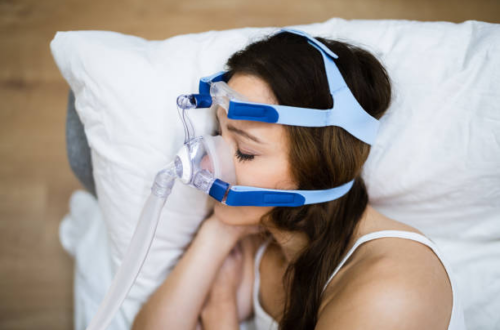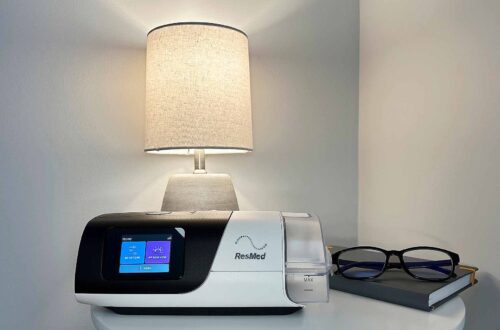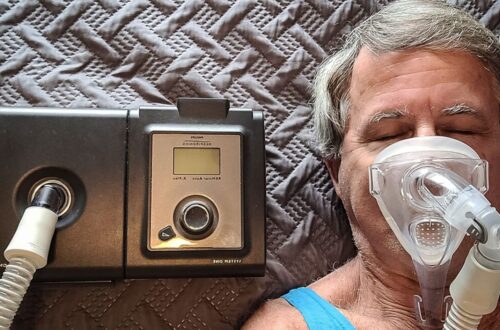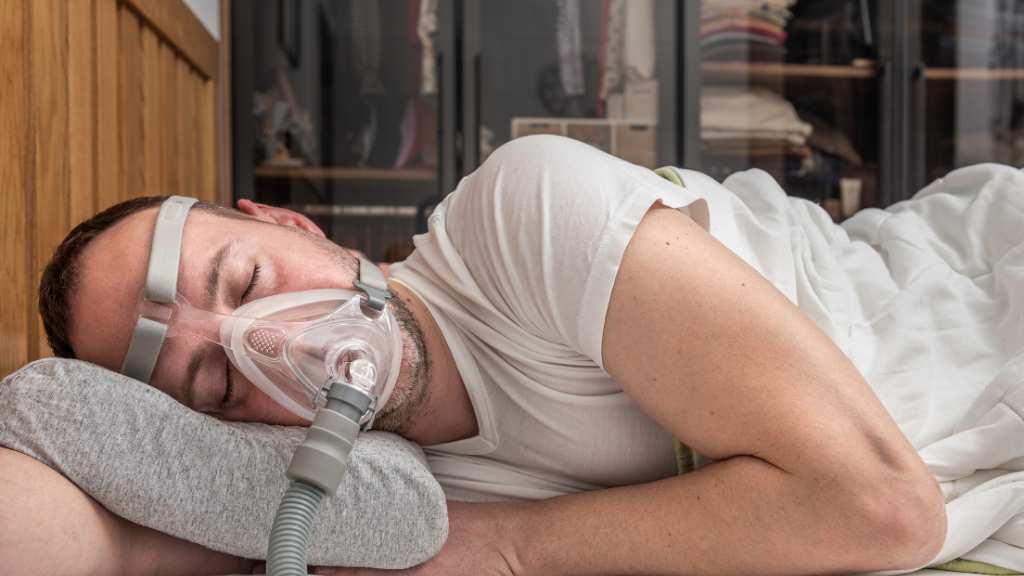
Maximising Comfort: Strategies for Reducing CPAP Mask Discomfort
CPAP (Continuous Positive Airway Pressure) therapy remains one of the most effective treatments for sleep apnea. However, for some individuals, discomfort caused by the CPAP mask can hinder their ability to embrace this potentially life-changing therapy. In this article, we will delve into the world of CPAP mask discomfort and discuss strategies to minimize it, paving the way for a restful night’s sleep and improved overall well-being.
Understanding CPAP Mask Discomfort
Before we delve into the strategies to alleviate CPAP mask discomfort, it is crucial to have a comprehensive understanding of the pivotal role that CPAP masks play in the cpap sleep study. These masks serve as a vital component in the therapy by delivering a continuous flow of pressurized air into the airways, thereby preventing them from collapsing during sleep. This continuous airflow helps in maintaining open airways, reducing breathing pauses, and eliminating snoring, ultimately enabling individuals to experience uninterrupted and restful sleep.
Furthermore, it is essential to acknowledge that the effectiveness of CPAP therapy in managing sleep apnea is heavily reliant on the comfort and fit of the CPAP mask. Addressing any discomfort or issues related to the mask is paramount in ensuring optimal adherence to the treatment regimen.
The Role of CPAP Masks in Sleep Apnea Treatment
Acting as the crucial link between the user and the CPAP machine, a CPAP mask plays a pivotal role in facilitating the delivery of pressurized air to the airways. It is imperative to select a well-fitting mask that establishes a secure seal to prevent any air leakage, ensuring the efficacy of the therapy.
Common Issues and Complaints with CPAP Masks
Among the array of challenges that CPAP mask users may encounter, discomfort stemming from the mask’s pressure on the face, skin irritation, air leakage, noise disturbances, and difficulties in achieving the perfect fit are prevalent. These issues can pose obstacles to the seamless integration of CPAP therapy into one’s nightly routine, underscoring the importance of addressing and mitigating these concerns promptly.
Moreover, understanding the nuances of CPAP mask discomfort and proactively seeking solutions can significantly enhance the overall experience of individuals undergoing sleep apnea treatment with CPAP therapy.

Essential Features for a Comfortable CPAP Mask
When selecting a CPAP mask, certain features can play a crucial role in enhancing comfort and facilitating a pleasant sleep experience. Let us explore some of these key considerations.
Comfort during CPAP therapy is paramount for ensuring a good night’s sleep and overall well-being. In addition to material and design, factors such as headgear adjustability and forehead support can significantly impact comfort levels. Masks with adjustable headgear straps and cushioning around the forehead can help distribute pressure evenly, reducing the risk of discomfort and skin irritation. Learn more about skin irritation click here.
Material and Design Considerations
The choice of material and design of the CPAP mask can greatly impact comfort. Masks are typically made of silicone or softer fabrics that are less likely to cause skin irritation. Additionally, masks with minimal contact points can reduce discomfort and pressure on the face, facilitating a more restful sleep.
Furthermore, the design of the mask plays a crucial role in ensuring a proper seal and minimizing air leaks. Masks with a flexible frame that conforms to facial contours can provide a more secure fit, enhancing comfort and therapy effectiveness.
The Importance of Proper Mask Fit
A properly fitting mask is essential to prevent air leakage and optimize therapy effectiveness. It is recommended to work closely with a healthcare professional to ensure the mask is the right size and properly adjusted. Regular fittings and adjustments may be necessary as facial features change over time.
Moreover, the seal of the mask should be assessed regularly to ensure it remains effective. Factors such as weight fluctuations, changes in facial structure, or wear and tear on the mask can impact the seal, leading to air leaks and reduced therapy efficacy. Monitoring the fit of the mask and replacing worn-out parts can help maintain optimal comfort and treatment outcomes. Learn more about the importance of proper mask fit visit at https://www.cam.ac.uk/research/news/proper-fit-of-face-masks-is-more-important-than-material-study-suggests.
Tips for Reducing CPAP Mask Discomfort
While it may take time to adjust to CPAP therapy, several strategies can help minimize mask discomfort. Let’s explore some of these tips.
One additional tip to reduce CPAP mask discomfort is to ensure that the mask is properly fitted. A well-fitted mask can prevent air leaks and reduce pressure points on the face, leading to a more comfortable experience. It is essential to consult with a healthcare provider or a CPAP equipment supplier to find the right mask size and style that suits your facial structure and sleeping habits.
Gradual Adjustment to CPAP Therapy
Introducing CPAP therapy gradually can aid in acclimatizing to the mask and the sensation of pressurized air. Starting with shorter usage periods and gradually increasing the duration can make the transition more comfortable.
Moreover, experimenting with different sleeping positions while using the CPAP machine can also help in finding the most comfortable and effective way to wear the mask. Some individuals find sleeping on their back with a pillow supporting their neck and head can improve mask stability and reduce discomfort.
Regular Cleaning and Maintenance of Your CPAP Mask
Maintaining good hygiene by cleaning the mask regularly can help prevent skin irritation and enhance comfort. Following manufacturer guidelines for cleaning and replacing mask components is vital to ensure optimal performance and longevity of the mask.
In addition to regular cleaning, it is recommended to replace the CPAP mask and its components as per the manufacturer’s instructions. Over time, the mask’s cushion, headgear, and filters may wear out, affecting the seal and overall comfort. By replacing these parts timely, you can ensure that your CPAP therapy remains effective and comfortable.
Exploring Alternatives to Traditional CPAP Masks
For individuals who continue to experience discomfort despite trying different masks, exploring alternative options can be beneficial. Let’s consider two popular alternatives: nasal pillows and full face masks. Learn more about Choosing a CPAP Mask for Your Sleeping Position: Tips and Considerations click https://supplementsforskinhealth.com/choosing-a-cpap-mask-for-your-sleeping-position-tips-and-considerations/
Benefits of Nasal Pillows
Nasal pillows consist of two small prongs that are inserted directly into the nostrils. These masks are a good option for individuals who prefer minimal contact with their face and reduced mask interference during sleep. Nasal pillows offer a lightweight and less obstructive alternative to traditional masks.
One key advantage of nasal pillows is their ability to provide a more natural airflow, as they deliver air directly into the nostrils without covering the entire face. This can be particularly beneficial for individuals who feel claustrophobic with full face masks or who experience skin irritation from masks that cover a larger area of the face.
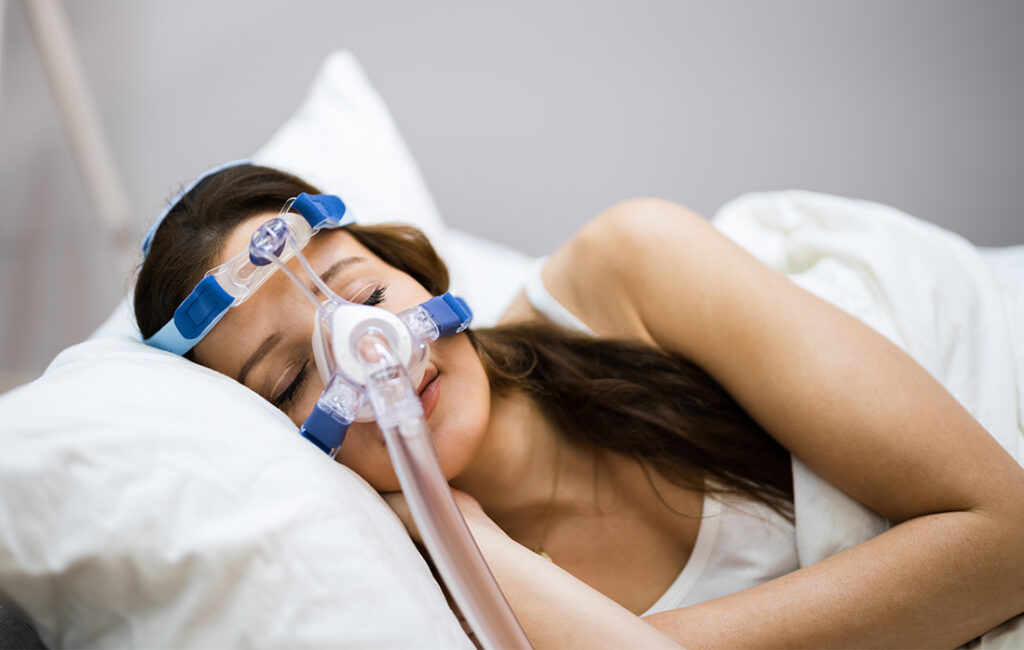
Advantages of Full Face Masks
Full face masks cover both the nose and the mouth, making them suitable for individuals who breathe through their mouths while sleeping or those with nasal congestion. These masks provide a secure fit and ensure effective delivery of pressurized air.
Another benefit of full face masks is their versatility in accommodating different sleeping positions. Whether you sleep on your back, side, or stomach, a full face mask can maintain a consistent seal, preventing air leaks and ensuring optimal therapy throughout the night. Additionally, full face masks are ideal for individuals who require higher pressure settings, as they can distribute the airflow more evenly across a larger surface area.
When to Seek Professional Help
While these strategies can improve comfort for many individuals, there are instances where professional assistance may be required.
Persistent Discomfort Despite Adjustments
If discomfort persists despite adjusting the mask and trying different strategies, it is crucial to consult with a healthcare professional. They can provide further guidance and assess whether there may be underlying issues contributing to the discomfort.
Recognizing and Addressing CPAP Mask Allergies
In some cases, individuals may develop allergies or sensitivities to materials in the mask or cleaning products. If symptoms such as skin redness, itching, or difficulty breathing occur, medical advice should be sought to identify potential allergies and explore alternative mask options.
It’s important to note that CPAP mask discomfort can sometimes be exacerbated by factors such as the fit of the mask, the pressure settings on the machine, or even the sleeping position of the individual. These variables can interact in complex ways, making it challenging to pinpoint the exact cause of discomfort without professional guidance.
Furthermore, individuals with underlying medical conditions such as chronic sinus issues, skin sensitivities, or respiratory disorders may require specialized care when using CPAP therapy. These conditions can impact the effectiveness and comfort of the treatment, underscoring the importance of seeking expert advice to tailor the therapy to individual needs.



